THE WORLD’S MOST EXPENSIVE WATCHES



Foreword 07
Introduction 08
Expensive Watches Explained:
Complications & Mechanical Features 10
Precious Materials & Artistic Technique 14
Historical Importance & Provenance 18
The World’s Most Expensive Watches
HYT – H2 In Platinum 20
Kerbedanz – Maximus Tourbillon 24
Breva – Genie 01 in Platinum 25
Van Cleef & Arpels – Les Voyages Extraordinaires “From the Earth to the Moon” 26
Badollet – Ivresse 27
Roger Dubuis – Excalibur Aventador S 28
Vianney Halter – Deep Space Tourbillon 30
Arnold & Son – Double Tourbillon Escapement (DTE) 32
Panerai – Luminor 1950 Equation of Time Tourbillon Titanio PAM00365 34
Cartier – Rotonde De Cartier Astrotourbillon Carbon Crystal 35
Ferdinand Berthoud – Chronomètre FB 1.2 36
Porsche Design – P’6910 Indicator 38
Audemars Piguet – Royal Oak Concept Laptimer Michael Schumacher 40
URWERK – UR-203 44
Panerai – L’Astronomo Luminor 1950 Tourbillon Moon Phases Equation of Time GMT 48
MB&F – Horological Machine No. 4 Final Edition 52
A. Lange & Söhne – Richard Lange Perpetual Calendar "Terraluna" 54
4N – 4N-MVT01/D01 58
Hautlence – HL2.2 62
Chopard – L.U.C Tourbillon Baguette 63
Ferdinand Berthoud – Chronomètre FB 1.RS 64
MB&F – HM3 JwlryMachine Watch 66
H. Moser & Cie. – Heritage Perpetual Calendar 68
Bernhard Lederer – The Gagarin Tourbillon 70
Chopard – L.U.C Perpetual T – Spirit of the Chinese Zodiac 74
Louis Vuitton – Tambour Mystérieuse 76
Jaeger-LeCoultre – Duomètre Sphérotourbillon 77
Cabestan – Winch Tourbillon Vertical 78
Rudis Sylva – RS12 Grand Art Horloger Harmonious Oscillator 82
Zenith – Academy Christophe Colomb Hurricane 86
Corum – Golden Bridge Tourbillon Panoramique 88
Laurent Ferrier – Galet Secret Tourbillon Double Spiral Meissen 90
Ateliers DeMonaco – Grand Tourbillon Minute Repeater 94
HYT – H3 95
Parmigiani Fleurier – Bugatti Type 390 96
De Bethune – DB28ST 98
Romain Jerome – Titanic DNA Day & Night Double Tourbillon 102
Ulysse Nardin – Grand Deck Marine Tourbillon 104
IWC – Grande Complication Platinum (ref. 9270-20) 108
Hublot – MP-05 LaFerrari 110
Roger W. Smith – Unique Tourbillon No. 4 114
De Witt – Academia Tourbillon Force Constante 118
URWERK – UR-CC1 King Cobra 122
Graham – Tourbillon Orrery 126
Omega – De Ville Central Tourbillon 128
Speake-Marin – Renaissance Tourbillon Minute Repeater 130
Franck Muller – Vanguard Tourbillon Minute Repeater Skeleton 134
Antoine Preziuso – Mega Tourbillon 135
Louis Vuitton – Tambour Minute Repeater 136
Hublot – Big Bang Unico Full Baguette King Gold Rainbow 138
Roger Dubuis – Excalibur Skeleton Double Flying Tourbillon 140
Jaeger-LeCoultre – Reverso Gyro-Tourbillon 2 141
Fonderie 47 – Inversion Principle Tourbillon 142
Grand Seiko – Kodo Constant-Force Tourbillon 144
Zenith – Academy Christophe Colomb Hurricane Grand Voyage II 146
Jacob & Co. – Quenttin 148
Rebellion – WEAP-ONE 149
Montblanc – Villeret 1858 Tourbillon Bi-Cylindrique 150
Bovet 1822 – Pininfarina Tourbillon Ottanta 154
Grönefeld – GTM-06 Tourbillon Minute Repeater 158
Louis Moinet – Space Revolution 162
De Bethune – DB16 Tourbillon Regulator 164
Bovet – Récital 26 Brainstorm® Chapter Two 168
MB&F – Horological Machine No. 6 Sapphire Vision 170
Piaget – Polo Tourbillon Relatif New York 172
Credor – Spring Drive Minute Repeater 173
Jaeger-LeCoultre – Master Ultra-Thin Minute Repeater Flying Tourbillon Hybris Mechanica II 174
Ulysse Nardin – Sparkling Blast 178
Antoine Preziuso – Chronometer Tourbillon of Tourbillons 182
de Grisogono – Meccanico DG 184
Harry Winston – Opus 6 185
Philippe Dufour – Grande Sonnerie 186
Bulgari – Octo Finissimo Ultra 188
Girard-Perregaux – Minute Repeater Tri-Axial Tourbillon 189
Blancpain – Carrousel Minute Repeater Flyback Chronograph 190
Chopard – L.U.C Full Strike Sapphire 194
Hublot – MP-07 Sapphire 40 Days Power Reserve 196
Girard-Perregaux – Tourbillon Bi-Axial Tantalum & Sapphire 197
Bell & Ross – BR-X1 Tourbillon Skeleton Sapphire Black 198
Concord – C1 Quantum Gravity Tourbillon 200
Cartier – Calibre de Cartier Grande Complication 204
Julien Coudray 1518 – Competentia 1515 206
De Bethune – Dream Watch 5 Meteorite 210
Voutilainen – Minute Repeater GMT 214
Thomas Prescher – Triple Axis Tourbillon 216
Jean Dunand – Shabaka 218
Jaquet Droz – The Charming Bird Automaton 220
Bexei – Primus Triple-Axis Tourbillon 224
Bovet – Récital 22 Grand Récital 228
Audemars Piguet – Millenary No. 5 AP Escapement Perpetual Calendar 230
A. Lange & Söhne – Tourbograph 234
Christophe Claret – Soprano 236
Van Cleef & Arpels – Poetic Wish Set 238
Spero Lucem – La Clémence Tourbillon Minute Repeater 242
Maîtres du Temps – Chapter One Round Transparence 246
Hysek – Colosso 250
Greubel Forsey – Double Tourbillon Technique 252
Christophe Claret – DualTow NightEagle 254
Albert Einstein’s Personal Longines 256
Audemars Piguet – Royal Oak Concept Supersonnerie 258
Cecil Purnell – Mirage 262
George Daniels – Co-Axial Chronograph 264
Bulgari – Magsonic Sonnerie Tourbillon 268
Harry Winston – Histoire de Tourbillon 3 272
Girard-Perregaux – Vintage 1945 Jackpot Tourbillon 274
Breguet – 3282 275
Chanel – J12 X-Ray Electro Calibre 3.1 276
F.P. Journe – Sonnerie Souveraine 278
Jaquet Droz – Tropical Bird Repeater 280
Jacob & Co. – Astronomia Maestro 282
Richard Mille – RM 27-01 Tourbillon Rafael Nadal 284
Greubel Forsey – Double Balancier Sapphire 288
Ulysse Nardin – Genghis Khan: Westminster Carillon Tourbillon Jaquemarts Minute Repeater 290
Bulgari – Octo Grande Sonnerie Quantième Perpétuel 294
Bovet 1822 – Amadeo Fleurier Notre Dame Minute Repeater Tourbillon 296
Audemars Piguet – Royal Oak Grande Complication 300
Greubel Forsey – Invention Piece 2 301
Breguet – Double Tourbillon 5349 302
Dubey & Schaldenbrand – Cœur Blanc 304
Louis Moinet – Magistralis 306
Grieb & Benzinger – Blue Whirlwind 308
IWC – Portuguese Sidérale Scafusia 310
Parmigiani Fleurier – Tecnica Palme 314
Richard Mille – RM 25-01 Tourbillon Adventure Sylvester Stallone 316
Vacheron Constantin – Les Cabinotiers Celestia Astronomical Grand Complication 3600 320
Richard Mille – RM 40-01 Automatic Winding Tourbillon McLaren Speedtail 322
Blancpain – 1735 Grande Complication 326
Dominique Renaud – DR01 328
Roger Dubuis – Excalibur Quatuor Silicon 330
Richard Mille – RM 50-02 Tourbillon Split Seconds Chronograph ACJ 334
Ulysse Nardin – Royal Blue Tourbillon 338
Rolex – Ref. 4113, Split Seconds Chronograph 342
Manufacture Royale – Opera 344
Jaeger-LeCoultre – Reverso Hybris Mechanica Calibre 185 “Quadriptyque” 348
Vacheron Constantin – Tour de l’Ile 350
Loiseau – 1f4 351
Patek Philippe – Sky Moon Tourbillon 5002P 352
Bulova – Chronograph 88510/01 worn by Apollo 15 astronaut Dave Scott on the Moon 354
Richard Mille – RM 56-01 Sapphire 358
Richard Mille – RM UP-01 Ferrari 362
A. Lange & Söhne – Grande Complication 364
Franck Muller – Aeternitas Mega 4 366
Jaeger-LeCoultre – Hybris Mechanica à Grande Sonnerie 368
Patek Philippe – Grandmaster Chime 5175 372
Piaget – Emperador Temple 376
Patek Philippe – Référence 2499/100P 378
Patek Philippe – 5004T for Only Watch 2013 380
Patek Philippe – J.B. Champion Platinum Observatory Chronometer 382
Hublot – Big Bang $5 Million 386
Patek Philippe – Nautilus Reference 5711/1A-018 “Tiffany & Co.” 388
Rolex – Daytona Reference 6239 “Paul Newman” 392
Jacob & Co. – Billionaire 396
Photographic Credits 398
Acknowledgements 399
In 2014, when The World’s Most Expensive Watches was originally released, I wrote the book to help showcase the typically hidden world of extremely high-end wristwatches priced at $200,000 and over. Like rare exotic birds, many of these watches are elusive rarities that few people ever actually see with their own eyes. Nevertheless, once in a while, lucky collectors or wealthy buyers get to experience these finely made objects in reality.
In 2014, the logic behind making or owning an extremely highend luxury wristwatch was a perplexing value proposition to the vast majority of people. Since the first edition of this book, the visibility of expensive wristwatches in both pop culture and the mainstream media (for better or worse) has, surprisingly, increased. Many casual investors now consider wristwatches to be among a litany of alternative financial asset classes, and the idea that successful, flashy people wear high-end watches is a popular concept with youth culture. In all, despite near-cataclysmic challenges since the start of the pandemic in 2019, the luxury watch industry has again beat the odds to be well-positioned as a market power.
Reasons for the popularity of very high-end watches can often intersect with politically charged issues. While the watches themselves might be innocent, their famous wearers aren’t always successful for morally-sound exploits. To some people (and of course depending on the context), the idea of brazenly showing off a luxury watch corresponds with the undesirable effects of adjacent cronyism, corruption and inequality. Wristwatches are not alone. On occasion, publicity-interested segments of society’s elite have been known to openly compete with one another by demonstrating who among them owns the most exclusive of otherwise exclusive items. In this respect, watches are among cars, real estate, wine, clothing, jewellery, and just about any other expensive item you can think of. All these things have probably reached an oversaturation point with middle-range consumer segments that cannot foreseeably afford most of the products dangled in front of them.
This book is decidedly not about things the middle class or even most rich classes can afford. For what it’s worth, watchmakers aren’t trying to make their timepieces any more
expensive than they need to be. The high cost of engineering and industrialisation development, plus ultra-low production numbers, means that much of the high-end wristwatch industry is a demonstration in the opposite of an economy of scale. Those who purchase such watches do so as true patrons of the arts. Some buyers may claim they are buying for value, but most end up admitting they are buying for a far more cherished reason: beauty. The resulting wisdom in that generalisation is the suggestion that high-end watches are purchased not because they serve some utilitarian purpose in life (though the heritage of wristwatches is very much about functional, purposeful products), but rather they are soughtafter for the emotions they evoke when they are worn.
Consumer envy among those who regrettably cannot obtain these fancy accessories, is perhaps a small price to pay for a thriving luxury watch industry that today dazzles the minds of consumers, just as it has for many generations. Mechanical watches continue to serve as remarkably practical timekeepers in a world dominated by connected digital devices. In fact, the world’s most popular modern smartwatches are still heavily inspired by the world of traditional watches in their look and feel: with each new generation of smartwatch released, their design and character feel closer to that of traditional watches, not further away from the classics.
The expressive and status-signalling value of a smartwatch is no match for pretty much all the products in this book. Most of the items in The World’s Most Expensive Watches are designed to impress and evoke awe, as well as to delight and sooth. This is art and emotion masquerading as a tool to measure our trajectory throughout the day. Many traditional watch lovers are opting to wear smartwatches during working and activity hours, while choosing to wear a traditional watch during leisure and social hours. Contrary to the fears of some reactionary managers in the traditional watch industry, classic watches and smartwatches can coexist and brands do not need to fear usurpation from the now market-dominant junior smartwatch industry. New and heritage industries in the wristwatch space can both enjoy market interest – and probably tend to feed off one another more than they disrupt one another. With that said, competition at even the highest levels of the mechanical
watch industry is fierce. For the most part, people who survey today’s product landscape see a market full of exceptional products. What sways consumers to trust their money with one brand versus another comes down to difficult-tomeasure, non-tangible factors, such as how it feels to shop at a brand or whether or not their friends are familiar with it. Therefore, the most value a high-end watch brand can have today is wide general-public awareness. It is no longer enough to merely make good watches.
The World’s Most Expensive Watches opens with a series of chapters where I explain why many of these watches cost what they do. While there are a few notable auction lot results included in these pages, the vast majority of price tags given to these wristwatches are retail prices. With prices into the millions of dollars each, the goal of these chapters is to explain the sources of values – and why particular forms of rarity or craftsmanship are desirable. Often high prices are not a result of mere material costs, but rather a calculation of professional human working hours all dedicated to the task.
Having said all that, more people now than ever are accustomed to the notion that luxury wristwatches can come with extremely high prices, some with a price tag of more than $200,000. An adjacent question I have asked myself is whether or not monetary inflation has prompted a moving of the book’s target – perhaps to an opening price of $235,000 or so. I decided against it. It turns out that while inflation has hit the watch industry, so has increased competition. It was not a particular challenge therefore to update The World’s Most Expensive Watches with products that have become commercially released since the publication of the first edition. Volume 2 has around 50% more watches than the original book and, like the original, it will also be published in a variety of languages. This is not surprising given that a fondness for high-end watches is common among sophisticated members of all societies – making this hobby among the few truly crosscultural intellectual and pleasure pursuits.
So, have watches costing $200,000 and up, that have been released since 2014, changed the game technically or with regards to their design? Indeed, there have been a number of new trends that have emerged over the last several years which demonstrate that the luxury maisons and most brilliant watchmakers have novel concepts on their minds. Size is important in new watches again, with smaller, lighter, and thinner watches being a new area of demand alongside larger and heavier watches. Not only are lighter watches more comfortable to wear, but they are also more suitable for daily life and activities. The shift in popularity from heavy, showy and complicated watches to lightweight, lean and legible watches is, in reality, a reflection on how many people are wearing luxury watches. It was once believed that people wearing ultra-luxury wristwatches would be in
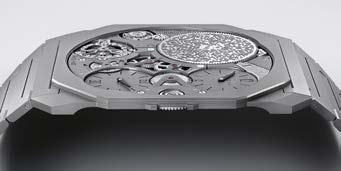
formal attire and in environments where they could show off precious stones. Today, even the most expensive luxury watches are expected to be comfortable and attractive enough to jet-set in, exercise in, shop in and socialise in. While there will always be a place for delicate spectacle watches, the most popular status watches today are those which can be conveniently worn on a daily basis.
Synthetic sapphire crystal has proven to be the most popular contemporary material in today’s most expensive watches. Once a material used as mere circular sheets over watch dials, now entire cases are made of the hard stuff using sophisticated computer-controlled milling techniques with diamond-tipped cutting tools. Sapphire crystal can be made to be transparent or in a host of colour shades and opacities – a variety of which can be found in this book.
The current popularity of luxury watches has made purchasing many of these products as arduous as being able to afford them in the first place. At the time of writing, a number of small-production watchmakers have order books full for the next several years. Prices for pre-owned pieces are sometimes higher than the original retail price, and at times the market value of rarer lower-priced watches is higher than that of less-rare costlier watches. Tracking the economics around the watch industry can be dizzying, but it's clear that a lot of hard-earned money is going to wards the production and purchase of these treasures.
As always, it is my enduring desire to avoid the world of shameless glitz in favour of true artistry and good taste. Effort is expensive, but in a world where luxury dollars need to be spent somewhere, I believe it most prudent for me to celebrate those products with the most inherent value. It would be impossible for any one book to take into account all the watches priced at $200,000 and above, but it is my experienced belief that this book is the best possible variety that faithfully introduces you to the best of breed items when it comes to today’s most expensive watches.
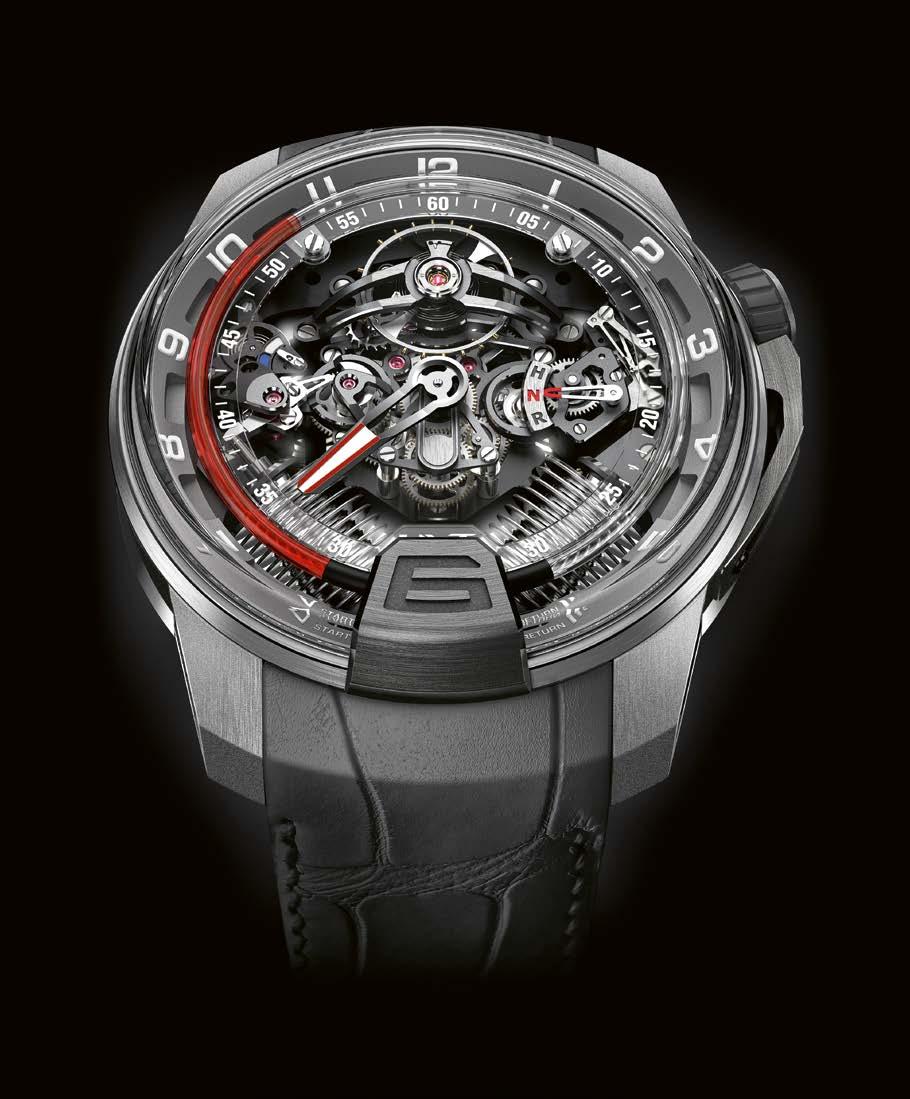
A VIEW ON THE REAR OF THE WATCH COMPLETES THE ATTRACTIVE MODERN DESIGN, WHICH SEEMS TO MIX SCIENCE FICTION WITH THE AESTHETIC OF AUTOMOTIVE ENGINES.


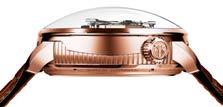

Size is everything in the realm of horology. In the watch world of micro-architecture, designers often like to play with superlatives – though not always those that collectors expect. Timepieces are often known to boast “the smallest”, “the most efficient”, “the most discreet”, “the thinnest”, or “the most complex” of features. Each of these efforts makes sense when the goal is to put as much as possible into a package designed to be worn on the wrist. At other times, a watchmaker’s goal is to boast, impress or simply attract attention. In those instances, the engineering efforts at play may be the exact opposite to the above. Case in point is the Swiss Kerbedanz Maximus, with a tourbillon so large it requires specially designed hands that sit underneath it.
At 27mm wide, the diameter of the “giant” flying tourbillon takes centre stage on the Kerbedanz Maximus watch dial. Most tourbillons rotate once per minute, but the Maximus’ tourbillon makes a full rotation once every six minutes. With this slower rotation and a 2.5Hz operational frequency, simply gazing at the persistently animated dial of the Maximus is, for many, a mesmerising experience.
With 415 parts required for assembly, the complicated movement requires an enormous level of consistent torque to power the large tourbillon-based regulation system. Winding the watch is actually performed by turning the case back, which offers a view of the four mainspring barrels along with a power-reserve indicator. Few watch movements indicating only the time with an hour and minute hand are this intensely complicated. Kerbedanz needed to develop a unique system of hands that exist around the tourbillon, as opposed to cutting through it, in order to maintain the aesthetic quality of the dial and further offer the technically sophisticated experience that collectors at this level demand.
How “maximum” is the Maximus on the wrist? The case (available in titanium or 18k gold) is a hefty 49mm wide and appreciably thick thanks to the steeply domed sapphire crystal. The intention behind the doming is to allow visibility of the large tourbillon through the sapphire crystal when viewed from the side, offering yet another visual perspective to this massive tourbillon-based piece of wearable timepiece art.
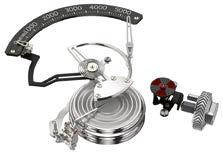
Sometimes a luxury watch is really about celebrating the art of the instrument. Launched in 2013, Swiss Breva’s debut product was the Genie 01, the world’s first timepiece with a mechanical altimeter, barometer, and weather prediction complication. In many instances today the luxury world mimics or conforms to what is popular in consumer electronics. When mobile phones became ubiquitous, luxury brands responded in kind to produce very high-end mobile phones. Later, environmental and fitness sensors on gadgets began to attract consumer attention. A watch like the Genie 01 is in actuality an environmental sensor, developed and curated for the luxury watch buyer.
There is a legitimate argument to be made that Breva’s Genie 01 watch has limited utility in a world dominated by ultra-precise digital instruments. Nevertheless, few can argue that most electronic environmental sensors are as elegant or beautiful to behold as the Genie 01. More importantly, it has technology that can be understand with the naked eye, a principle element that allows for many instrument lovers to have an emotional connection with an object. The dial of the Genie 01 is masterfully open-worked with overlapping dials produced from semi-transparent crystal to allow for a legible, albeit open view into the mechanism.
Breva worked with the well-regarded movement designer Jean-François Mojon and his company Chronode on the development of this innovative movement. On the left of the Genie 01’s face is a subsidiary dial for the time, and to the right is the barometric pressure scale, which is also used to predict the weather based on the increase or decrease of atmospheric pressure over time. To the top of the face is an altitude scale, while the dial also contains indicators for the running seconds as well as the power reserve of the mechanical movement. At the bottom of the dial is the most important element of the altimeter and barometer system: a specially produced aneroid capsule.
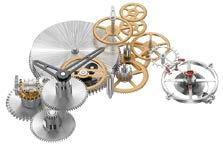
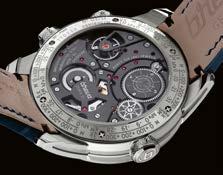

Over the capsule is a small arm that measures the expansion of the capsule, which occurs naturally in a predictable manner with a change in barometric pressure. Using the Breva Genie 01 watch to predict the weather is a bit less straight forward than electronic tools. One must first take the altitude into consideration, and must also equalize the pressure in the case – by opening a small air valve – while taking different readings over time.
Breva imagines the Genie 01 to be used by well-funded skiing enthusiasts and other such adventurers interested in how the weather may affect their treks. The watch is, nevertheless, produced exclusively from precious materials and makes a bold statement at 44.70mm wide and 15.60mm high. Initially produced in 18k rose or white gold, the Breva Genie 01 was also produced in platinum, which was limited to just 12 pieces.
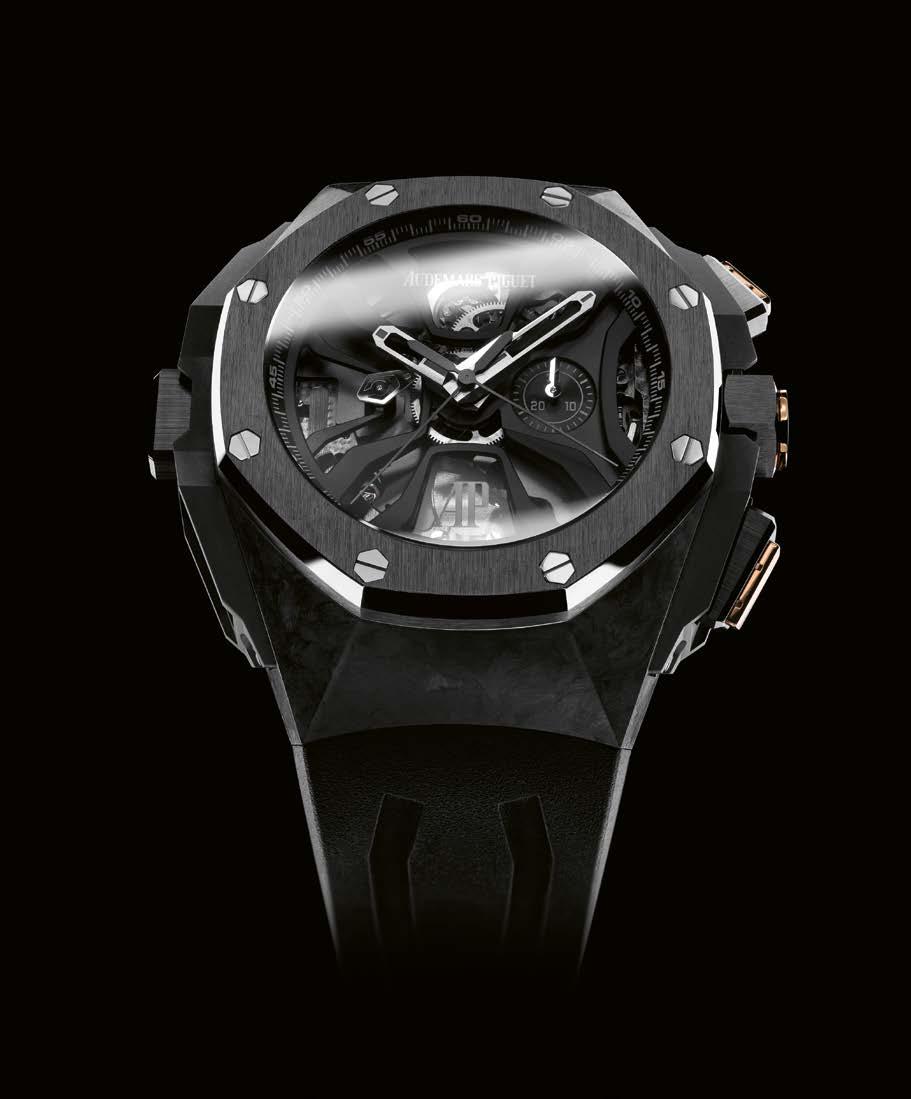
AUDEMARS

PIGUET – ROYAL OAK CONCEPT LAPTIMER MICHAEL SCHUMACHER
$ 229 500
THE IMMEDIATE BENEFIT OF THE NEW TIMING FEATURES IN THE ROYAL OAK CONCEPT LAPTIMER MICHAEL SCHUMACHER IS THAT THE WEARER IS ACTUALLY ABLE TO SAVE TIME.
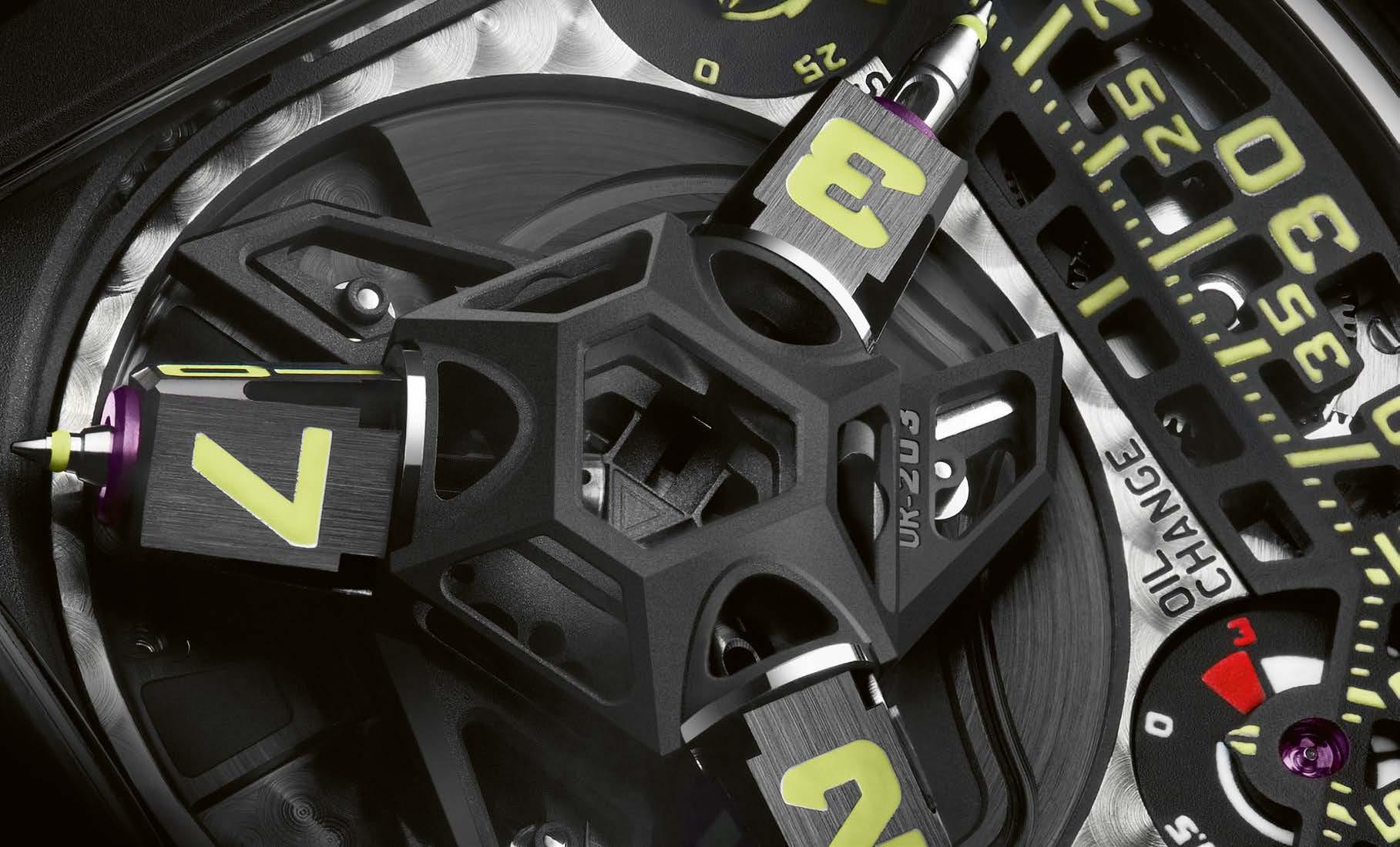

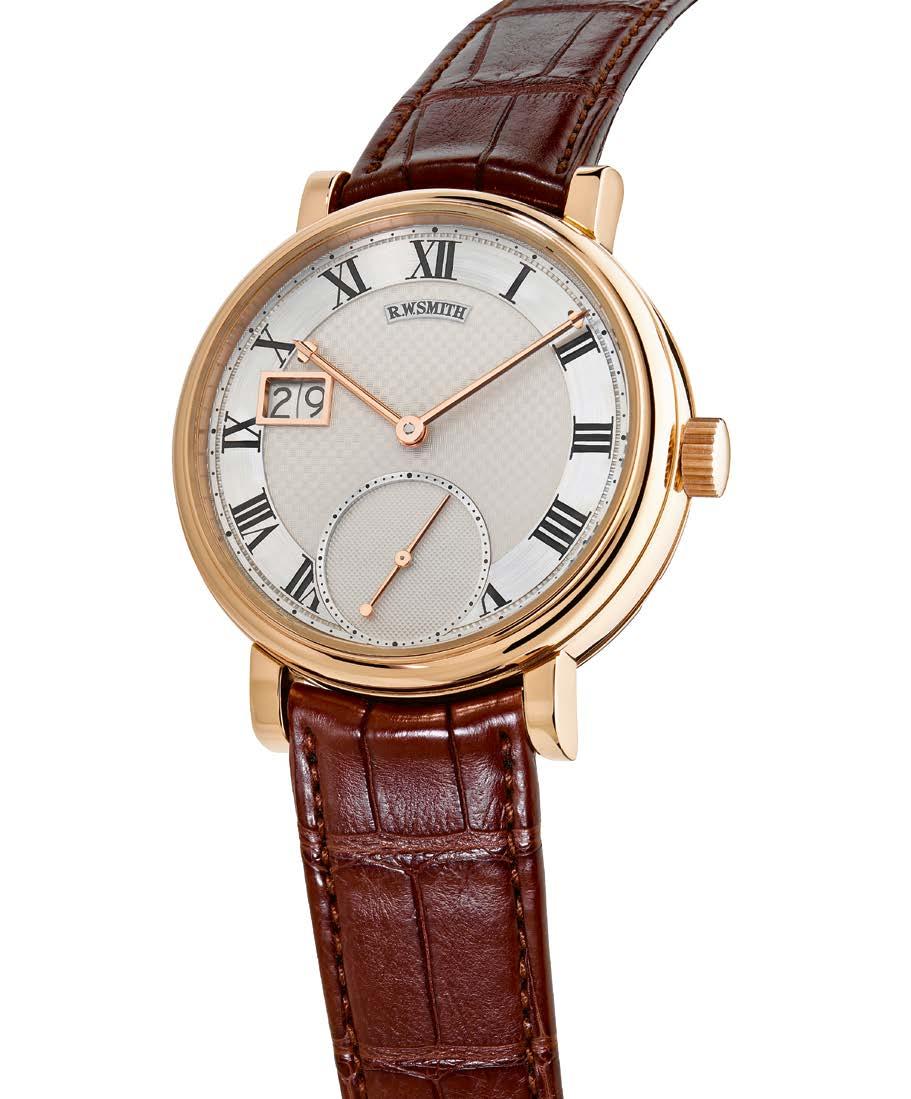
$ 324 000
BEAUTIFULLY SIMPLE, IN ROGER SMITH’S OWN WORDS THE TOURBILLON NO. 4 IS “UNDERSTATED”.



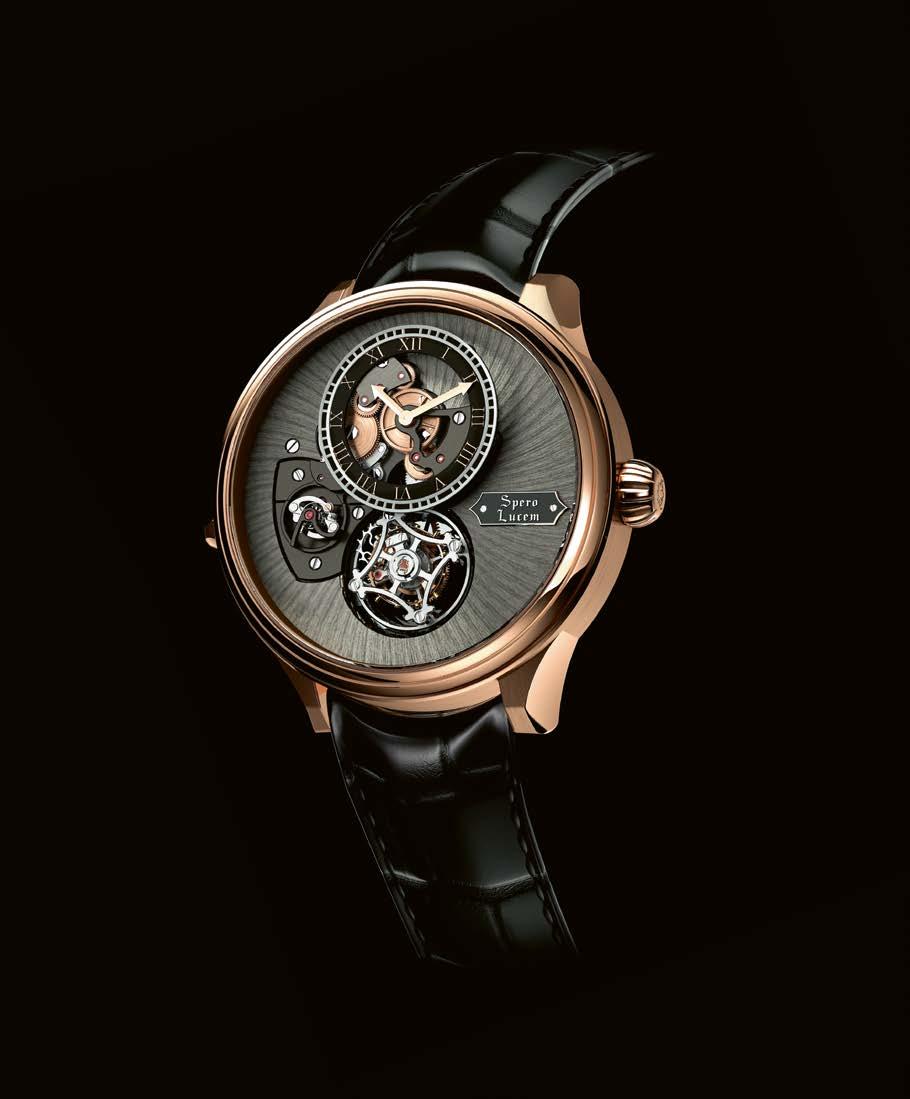

$ 532 000
A HIDDEN COMPLICATION IN THE LA CLÉMENCE WATCH IS THE “CRAZY HANDS” COMPLICATION. THE WATCH CONTAINS BOTH A TOURBILLON AS WELL AS A MINUTE REPEATER.
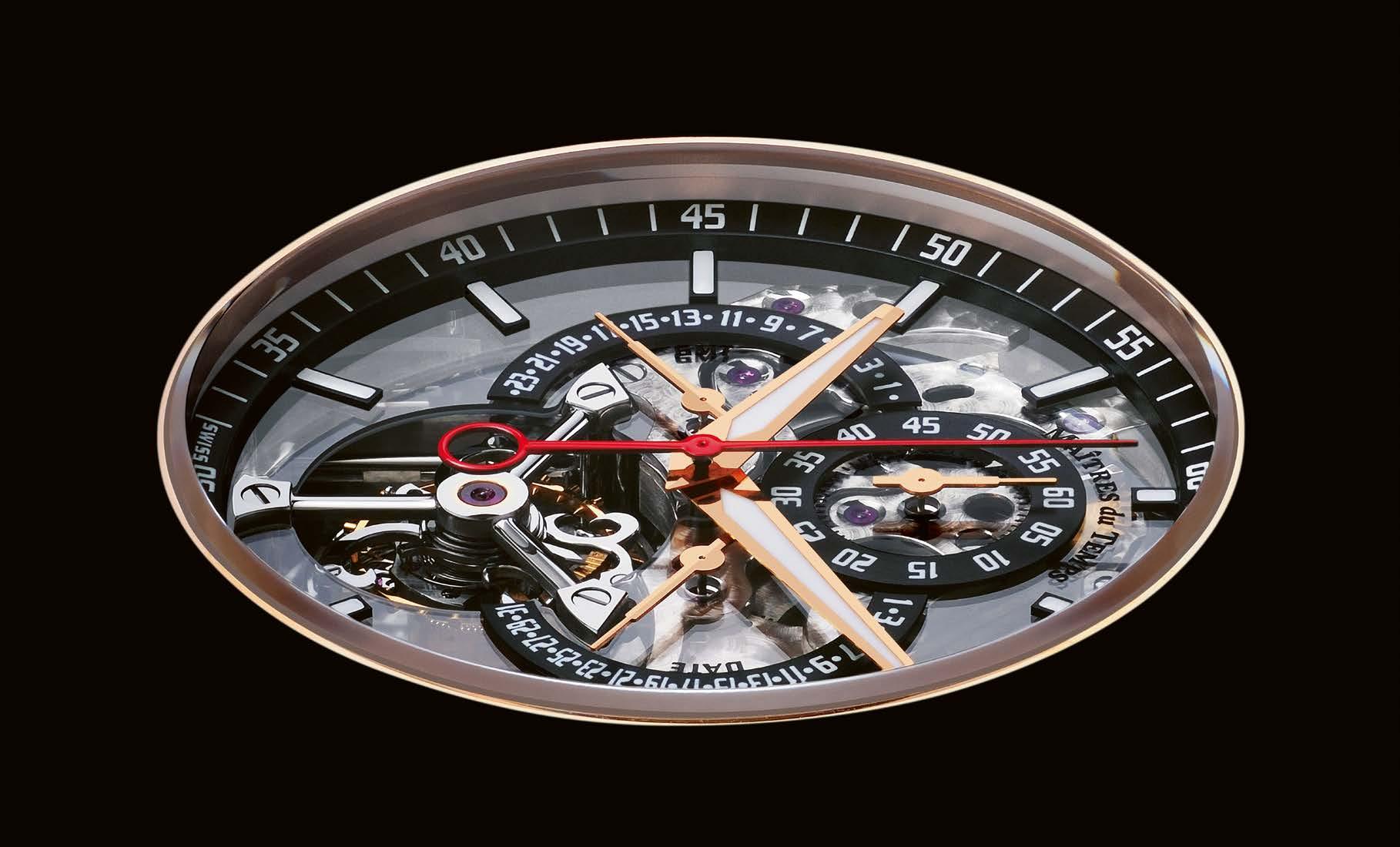

The World’s Most Expensive Watches showcases the exclusive world of extremely high-end wristwatches priced at $200,000 and over. Opening with a series of chapters to explain why many of these watches cost what they do and why particular forms of rarity or craftsmanship are desirable, this updated second edition includes 50 new watches that have become commercially available since the publication of the first edition.
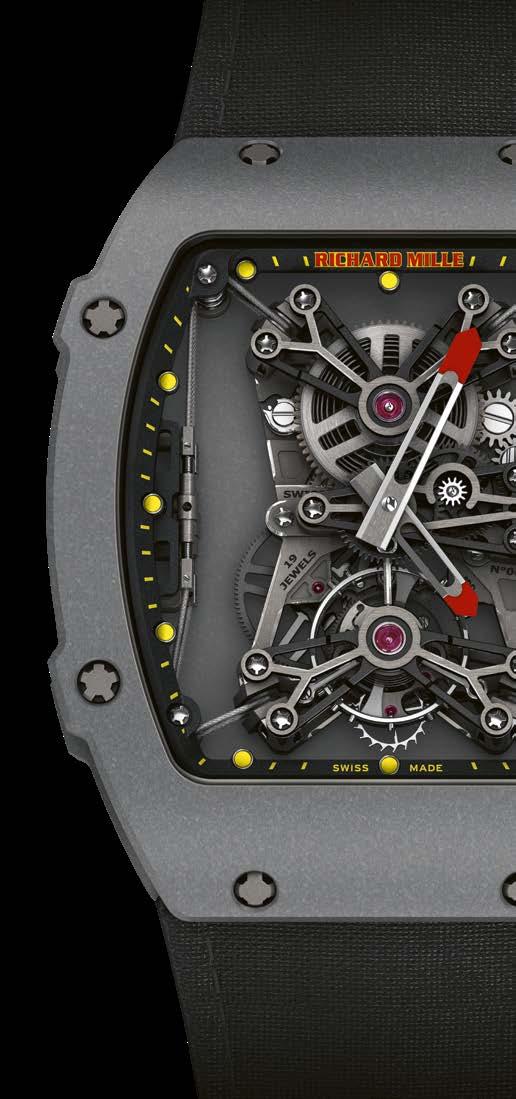
With stunning colour photos, accompanied by details on the craftsmanship, materials and design for each individual watch, this book offers the best possible insight into the exclusivity and collectability of today’s most expensive watches.
Ariel Adams is the owner and editor of aBlogtoWatch.com – the world’s most popular watch blog.